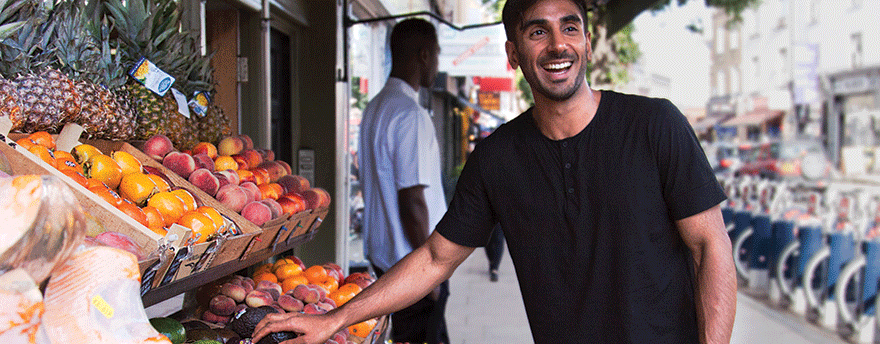A conversation to have with your GP surgery?

Could medicine and healthy nutrition at last be aligning? ‘Medic on a mission’ Dr Rupy Aujla clearly believes so.
At long last we are beginning to witness pioneering young doctors promoting the message that good, lasting health comes with a diet of nourishing whole food, as opposed to the standard prescription of 'a pill for every ill'.
That was the how the Health Food Institute introduced Dr Rupy Aujla, this year’s speaker at its Jack Noah Memorial Lecture.
He’s an NHS Doctor who is passionate about healthy living, nutrition and great tasting food and, as clinical adviser to the Royal College of General Practitioners, he is well placed to bring his concept of ‘Culinary Medicine’ to the medical profession.
“Imagine a world where chronic disease is a rarity,” begins Dr Rupy before an enrapt audience at the Royal Overseas League in London. “A world where people live longer, healthier lives, where their bones are strong and their minds sharp.”
Exactly the principles behind the first health food store opened by James Henry Cook in Birmingham almost 120 years ago and indeed the motivation of the retailer in memory of whom this lecture is delivered annually.
As a medical student, Dr Rupy had just 10 hours of learning about nutrition in five years of medical training, “and not much has changed since then”.
“I have a personal project to inspire 100 of my patients to eat themselves to health,” he says. “But how do you equip the modern doctor to have that conversation? We should teach doctors how to cook.
“The impact of food on our DNA is a fascinating aspect to come out of nutritional science. For example, gut science is in its infancy but accelerating fast. Our food affects our microbiome and influences our DNA; food is why we are sick in the first place – that’s a conversation the medical profession is having right now.”
An example of this is seen at the Goldring Centre for Culinary Medicine at Tulane University, New Orleans, where hands on culinary lessons are based on medical conditions. This programme is now licensed to a quarter of US medical schools and the course founder, Dr Tim Harlan, and Dr Rupy have collaborated to bring the courses to UK GPs and apply culinary medicine here, ultimately across every UK medical school.
An early success is Bristol Medical School which shares Dr Rupy’s ‘Big Wacky Goal’ of having community kitchens affiliated to every GP surgery. In London, Dr Rupy has helped set up the lottery-funded Made In Hackney community kitchen where people are taught how to cook healthy food, in this case vegan, to improve outcomes.
“The fact that I was invited to speak at the HFI is very exciting,” he says. “We have an opportunity to capitalise on public interest in nutrition and develop the concept of food as medicine on a far grander scale.
“Health food stores are in a privileged position to educate people. Together we can educate ever more discerning consumers about where they get their produce from.
“It is vital to have a relationship with your GPs who hold a privileged position, so that they know where the local health store is. This is about planting a signposting seed in their minds.
“The aim is to elevate culinary medicine among medical professionals, a movement that can be grown organically at grass-roots level. It’s attracting a lot of interest, it is achievable, but it will take time.”
Dr Rupy’s website, The Doctor’s Kitchen, helps people to reach their healthier lifestyle goals as does his book, The Doctor’s Kitchen, published by Harper Collins.
Read more articles from our latest issue...